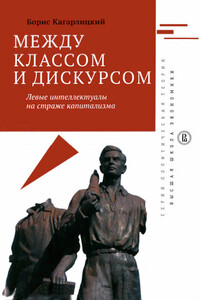. (2011). Lab Coats in Hollywood: Scientists Impact on Cinema, Cinema’s Impact on Science and Technology. Cambridge, MA: MIT Press.
Knight D. (2006). Public Understanding of Science. London: Routledge.
Kohler R. (1994). Partners in Science: Foundations and Natural Scientists. Chicago: University of Chicago Press.
Kuhn T. ([1962] 1970). The Structure of Scientific Revolutions. 2nd ed. Chicago: University of Chicago Press.
Kuhn T. (1977). The Essential Tension. Chicago: University of Chicago Press.
Langley P., Simon H., Bradshaw G., Zytkow J. (1987). Scientific Discovery. Cambridge, MA: MIT Press.
Latour B. (1987). Science in Action. Milton Keynes, UK: Open University Press.
Latour B. (1993). We Have Never Been Modern. Cambridge, MA: Harvard University Press.
Latour B. (2004). Why Has Critique Run Out of Steam? From Matters of Fact to Matters of Concern // Critical Inquiry. No. 30(2). P. 225–248.
Lecourt D. (1976). Proletarian Science? London: Verso.
Lepenies W. (1988). Between Literature and Science: The Rise of Sociology. Cambridge, UK: Cambridge University Press.
Lessig L. (2001). The Future of Ideas: The Fate of the Commons in a Connected World. New York: Random House.
Lippmann W. (1922). Public Opinion. New York: Harcourt, Brace and Company.
Lippmann W. (1925). The Phantom Public. New York: Macmillan.
Lynch W. (2001). Solomon’s Child. Palo Alto, CA: Stanford University Press.
Maslow A. (1998). Maslow on Management. New York: John Wiley & Sons.
Mayer J. (2016). Dark Money: The Hidden History of the Billionaires behind the Rise of the Radical Right. London: Penguin.
Mazlish B. (1989). A New Science: The Breakdown of Connections and the Birth of Sociology. Oxford: Oxford University Press.
Mazzucato M. (2013). The Entrepreneurial State. London: Anthem Press.
McCloskey D. (1982). The Rhetoric of Economics. Madison: University of Wisconsin Press.
McCloskey D. (2006). The Bourgeois Virtues: Ethics for an Age of Commerce. Chicago: University of Chicago Press.
McCloskey D. (2010). Bourgeois Dignity: Why Economics Can’t Explain the Modern World. Chicago: University of Chicago Press.
McKenzie R., Tullock G. ([1975] 2012). The New World of Economics. 6th ed. Berlin: Springer.
McLuhan M. (1951). The Mechanical Bride. New York: Vanguard Press.
Mead C. (2013). War Play: Video Games and the Future of Conflict. Boston: Houghton Mifflin Harcourt.
Melzer A. (2014). Philosophy between the Lines: The Lost History of Esoteric Writing. Chicago, IL: University of Chicago Press.
Merton R. (1965). On the Shoulders of Giants. New York: Free Press.
Merton R. ([1949] 1968a). Social Theory and Social Structure. 3rd ed. New York: Free Press.
Merton R. (1968b). The Matthew Effect in Science // Science. No. 159(3810). P. 56–63.
Merton R. (1976). Sociological Ambivalence and Other Essays. New York: Free Press.
Milbank J. (1990). Theology and Social Theory. Oxford: Blackwell.
Mirowski P. (2002). Machine Dreams: How Economics Became a Cyborg Science. Cambridge, UK: Cambridge University Press.
Morozov E. (2013). To Save Everything, Click Here. London: Allen Lane.
Neumann M. (2006). A Formal Bridge between Epistemic Cultures: Objective Possibility in the Times of the Second German Empire // Foundations of the Formal Sciences: History of the Concept of the Formal Sciences / ed. by B. Löwe, V. Peckhaus, T. Räsch. London: Kings College Publications. P. 169–182.
Nida E. (1964). Towards a Science of Translation. The Hague: E.J. Brill.
Nisbett R., Ross L. (1980). Human Inference: Strategies and Shortcomings of Human Judgement. Englewood Cliffs, NJ: Prentice-Hall.
Oreskes N., Conway E. M. (2011). Merchants of Doubt: How a Handful of Scientists Obscured the Truth on Issues from Tobacco Smoke to Global Warming. New York: Bloomsbury.
Parsons T. (1937). The Structure of Social Action. New York: McGraw-Hill.
Penrose R. (1989). The Emperor’s New Mind. Oxford: Oxford University Press.
Peoples L. (2010). The Citation of Wikipedia in Judicial Decisions // Yale Journal of Law and Technology. No. 12(1). P. 1–51.
Pettegree A




